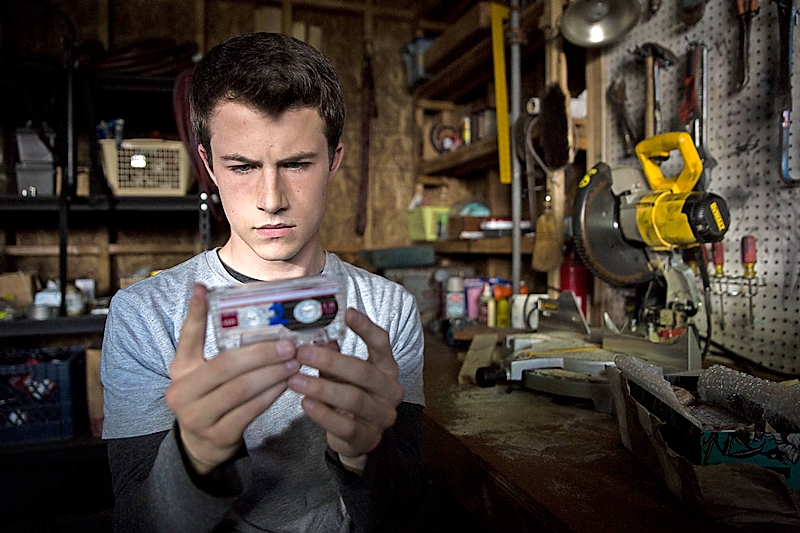The Battle Within
By Hilary Decent
January 2018 View more Featured

Jesse Scheirer was only 11 years old when she tried to commit suicide the first time. She wrote a note before swallowing a bottle of eye moisturizing liquid, which luckily was made mostly of water. Since then, Jessie has tried seven more times and has been hospitalized six. During her attempts to get help for her daughter, Andrea Scheirer discovered that mental illness can be genetic. She suffers from depression and anxiety and was diagnosed with bipolar disorder in her 30s. Her brother committed suicide in his 20s.
You can’t prevent genetic depression, it’s biological,” says Andrea, who lives in Naperville. “For some people, if there are no triggers it may never come to light. But we first saw it in Jesse when she was in first grade, when she had trouble getting along with other children. She was very irritable, which led the other children to pick on her. She had help with strategies from a social worker, but in fourth grade she tried to commit suicide.”
After years of using different hospitals and counselors, Andrea sought help from the local chapter of National Alliance on Mental Illness (NAMI). After attending a class, she began volunteering for them and now works in its Wheaton office.
Today, Jesse is 19 and doing well. She graduated from high school and attended College of DuPage last semester. Last summer, she started working at Mariano’s grocery store and came home each day rejuvenated, away from the stressors of school.
There are many reasons that teens can become clinically depressed. Only a very small percent attempt suicide, but that doesn’t mean parents shouldn’t seek help as soon as they see something is wrong.
Margot Smith is the Clinical Director of 360 Youth Services in Naperville. “Teen depression can be genetic, but we see a lot of teens impacted by cultural discontentment. It’s normal to get down after seeing perfect images on social media,” she says. “There’s also community pressure, which is sometimes unspoken. They feel they have to go to a good college and do lots of activities, even if their parents aren’t pressuring them.”
There’s a reason why problems that may seem unimportant to adults are insurmountable for teens.
“A lot [of teens] make typical adolescent mistakes and catastrophize them,” Smith says. “There’s pressure for them to have things figured out. The fact is, their brains are not fully developed until they are 25.” Some teens simply don’t understand that life goes in phases and they will get past the difficult times.
Smith believes it is better to deal with signs of depression as early as possible. Red flags include irritability and withdrawal. Of course these behaviors are common in adolescents, but it’s important to check in with your child to see if they are just having a bad day or if something is seriously wrong.
“Don’t say, ‘I don’t get what you are unhappy about,’” counsels Smith. “Depression is not about having everything you need, and a lot of parents worry about how it reflects on them. We aim to listen to the children and help get them talking to their parents; we try to help them understand we’re all just doing the best we can.”
The controversial Netflix series “13 Reasons Why” highlights teen suicide through the eyes of high schooler Hannah Baker, who leaves tapes for her friends to hear after she dies.
“Hannah was isolated. Her counselor made mistakes, but some of our kids found the series useful,” says Smith. “They said they would never do what she did because they saw how it impacted her parents.”
Dr. Lisa Pinto, co-founder of Naperville Clinical Associates, believes Naperville is a very “psychologically sophisticated” community.
“Everybody knows somebody who has dealt with depression,” she says. “But it still has a stigma because some people don’t see it as a medical issue—they see it as a weakness.”
Dr. Pinto says it’s important that parents know who their children’s friends are and which websites they are looking at.
“Talk about things you see in the media,” she adds. “Many times we feel like behaviors are typical for teenagers, but if you see something you are concerned about, act on it. If your child threatens to commit suicide, always take it seriously.”
Local Resources
National Alliance on Mental Illness (NAMI)
115 North County Farm Road, Wheaton
630.752.0066
namidupage.org
Offers classes for teens and families on recognizing signs and symptoms of depression
360 Youth Services
1548 Bond Street, Suite 114, Naperville
630.717.9408, Ext. 1180 (24-hour intake line)
360youthservices.org
Offers individual and family counseling
Naperville Clinical Associates
1775 Park Street, Suite 300, Naperville
630.416.6056
napervillepsych.com
Offer private counseling
Alive Center
500 West Fifth Avenue, Naperville
630.778.6093
alivenaperville.com
A nonprofit teen center led by teens, for teens, offering mentoring, life-skill classes and social events
Crisis Text Line
Text “REACH” to 741741
Anyone can text to receive support from Naperville Collaborative Youth Team’s trained counselors. The new support option is free, accessible 24/7 and confidential.


